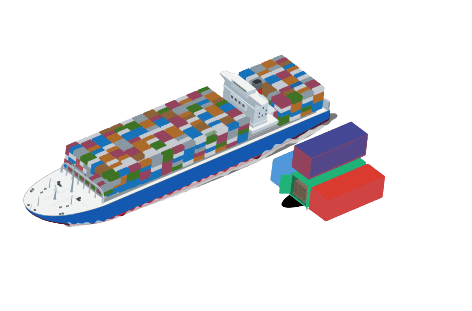The General Data Protection Law (LGPD) is legislation that has had a significant impact on all areas of business, including the international logistics sector. Implementing LGPD is crucial for companies looking to reduce costs, avoid operational failures, and ensure the security of customer data.
In this article, we will explore the importance of LGPD for international logistics and how its implementation can optimize operations and ensure legal compliance.
What Is LGPD?
The General Data Protection Law, Law No. 13,709/2018, is legislation aimed at protecting the privacy and freedom of individuals regarding their personal data. Approved in 2018 and sanctioned in 2020, LGPD standardizes regulations and practices for the protection of personal data of all Brazilian citizens, aligning with international standards.
This law provides security for both individuals and companies, ensuring that the rights and individual guarantees related to data are respected by all entities with access to them.
Impacts of LGPD on International Logistics
LGPD has brought significant changes to companies in various sectors, including international logistics. Companies in this segment deal with a large amount of data daily, from information about shipments and cargo tracking to customer information.
By complying with LGPD, logistics companies can ensure the protection and security of their customers’ personal data, avoiding leaks and potential negative impacts. Furthermore, legal compliance reduces the risk of penalties and damage to the company’s reputation, resulting in a trusted relationship with customers.
Importance of Understanding LGPD for the Logistics Sector
It is essential for international logistics companies to be familiar with LGPD to understand the measures that must be taken regarding personal data processing. Knowledge of the law allows companies to adjust their processes and activities correctly, avoiding potential fines and sanctions for non-compliance with the law.
Although LGPD protects only personal data of individuals, companies can benefit from implementing its principles and concepts in their operations. By adopting measures such as the adoption of new technologies, consent policies, and internal process reviews, companies can enhance data security and ensure compliance with the law.
Implementing LGPD in the International Logistics Sector
To implement LGPD in their operations, international logistics companies can follow some guidelines:
- Adoption of Secure Technologies: Use data storage and management systems and platforms that ensure the security and privacy of information.
- Consent Policies: Obtain explicit consent from customers for the processing of their personal data and provide clear information on how the data will be used.
- Review of Internal Processes: Conduct a thorough analysis of all internal processes involving personal data, identifying possible security gaps and implementing corrective measures.
- Risk Management: Focus on data protection risk management to prevent data leaks or misuse.
Conclusion
LGPD represents a significant milestone for the protection of personal data in Brazil and directly affects the international logistics sector. Adhering to LGPD not only protects customers and the reputation of companies but also ensures the efficiency of logistics operations and prevents future issues related to data processing.
Professionals in logistics, international trade, and procurement from medium and large companies must be aware of the importance of LGPD for the success of their operations and for establishing a trusted relationship with their customers.
About Cheap2Ship
Get to know Cheap2Ship, a technology company specializing in logistics and international trade. Through our advanced freight management and quoting platform, medium and large companies have experienced significant increases in operational efficiency and a reduction in logistics costs.
Our commitment is to provide greater transparency in costs related to current freight providers, such as carriers, freight forwarders, and transporters. This allows our clients to make more informed and strategic decisions for their businesses.
To learn more about our innovative solutions, visit our website and follow us on social media. There, you will find relevant content on international trade, logistics, and supply chain. We are ready to boost your company’s success in the global market. Join us and discover how we can make a difference for your business.

